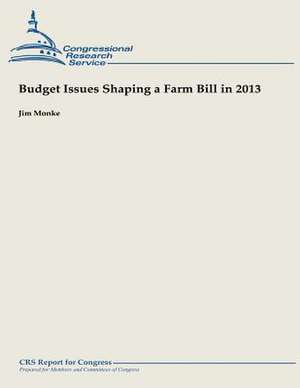Budget Issues Shaping a Farm Bill in 2013
Autor Jim Monkeen Limba Engleză Paperback
Preț: 86.36 lei
Nou
Puncte Express: 130
Preț estimativ în valută:
16.53€ • 17.95$ • 13.88£
16.53€ • 17.95$ • 13.88£
Carte disponibilă
Livrare economică 01-15 aprilie
Preluare comenzi: 021 569.72.76
Specificații
ISBN-13: 9781490944616
ISBN-10: 1490944613
Pagini: 44
Dimensiuni: 216 x 280 x 2 mm
Greutate: 0.13 kg
Editura: CREATESPACE
ISBN-10: 1490944613
Pagini: 44
Dimensiuni: 216 x 280 x 2 mm
Greutate: 0.13 kg
Editura: CREATESPACE
